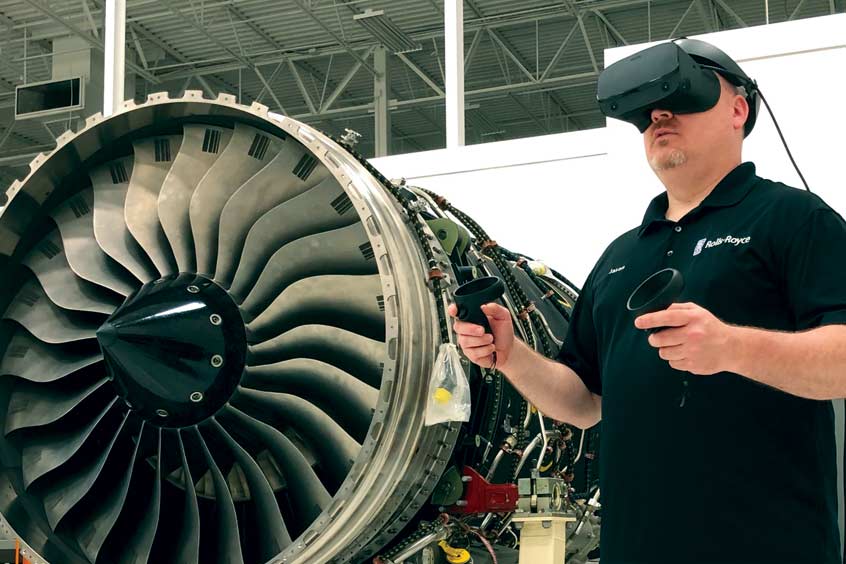Why visit ACE ’25?

Even during the COVID-19 pandemic, Rolls-Royce is continuing to ensure support for its global customer base. As part of its IntelligentEngine vision it is further expanding the use of immersive virtual reality technology for customer training.
The latest addition to the remote training programme is an instructor-led distance learning course, providing a comprehensive overview of the construction, design and operation of the Rolls-Royce BR725 engine that powers Gulfstream's current flagship G650 business aircraft family. After completion of this comprehensive two-day training course, participants will be able to service the engine and undertake non-routine maintenance.
Andy Robinson, SVP customers and services - business aviation, says: “Rolls-Royce has been the leading engine supplier for business aircraft for more than two decades, thanks to our continued commitment to the highest levels of service support.
“Digitalisation plays a vital role in in bringing our IntelligentEngine vision to life; we use it to design, test and maintain our engines. This new immersive live virtual training tool is nothing short of a game-changer; it makes us the leader in technical training, and allows customers to participate in the new training, wherever they are in the world. They just need an internet connection and the required VR equipment, which will be shipped directly to their door,” Robinson adds.
Lee Bradshaw, director of technical operations, Cox Aviation, says: “The new virtual reality maintenance course is a great example of the innovative thinking that is needed to meet the challenges of our ever-changing world. This programme allows each student to immerse themselves in an augmented environment full of realistic images, interactive functions and auditory feedback to delve deeper into the engine like never before. The course complements the industry-leading service already provided by Rolls-Royce and is another reminder of why this company is pioneering the way in creative solutions for the future.”
While not intended to completely replace practical training, Rolls-Royce see the value virtual reality adds for customers, such as higher flexibility and the elimination of the need to ship a full size training engine. The user finds themselves as part of two realistic scenarios; the engine installed on the aircraft in a virtual hangar and the BR725 engine alone, just like it would be in Rolls-Royce's in-person training courses. The immersive environment allows them not only to watch the process steps to get familiar with the respective task, but to interact with the engine and the tools, and actually accomplish the task under the constant supervision of the instructor.